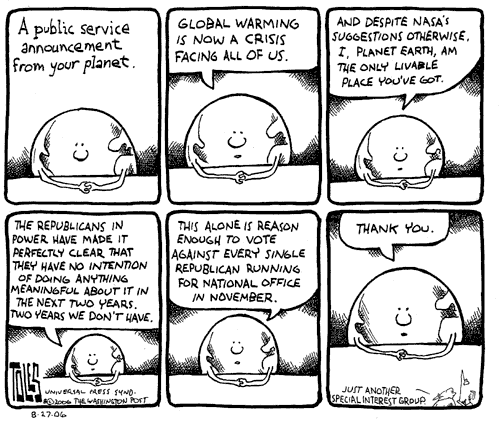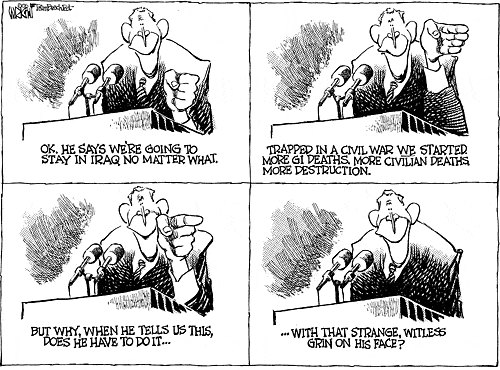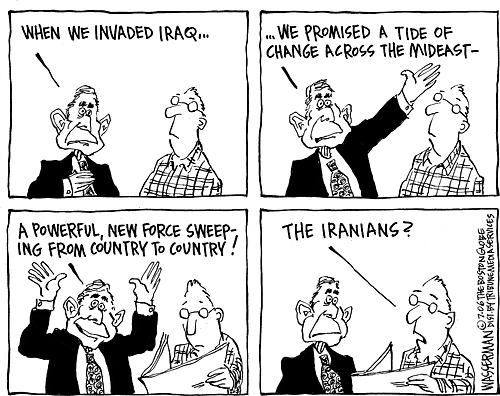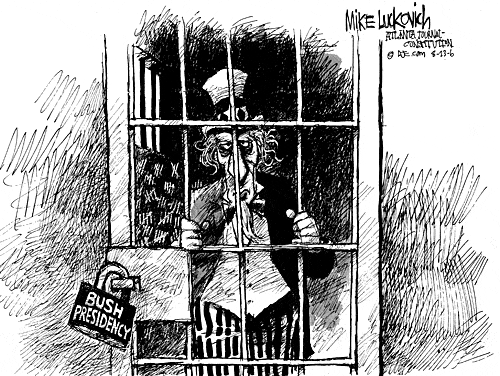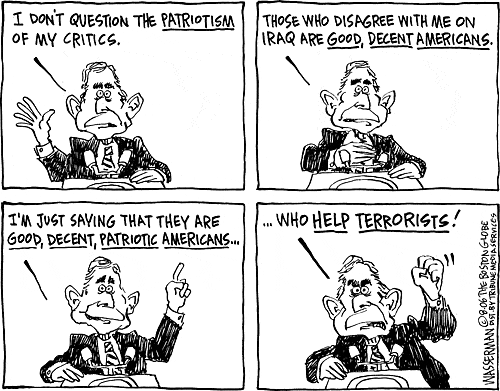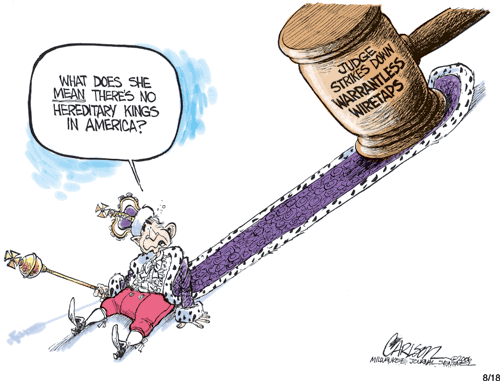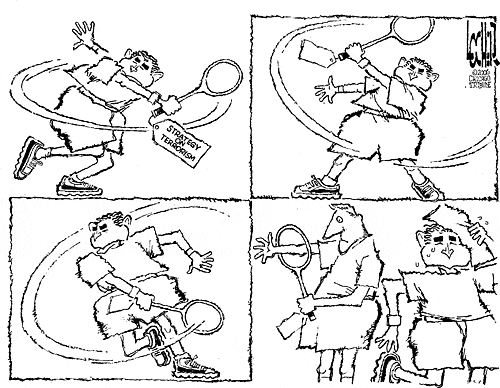LAHORE, Pakistan, Aug. 22 — After months of widespread frustration with corruption, the economy and a lack of justice and security, doubts about President Hamid Karzai of Afghanistan, and by extension the American-led effort to rebuild that nation, have led to a crisis of confidence.
Interviews with ordinary Afghans and with foreign diplomats and Afghan officials make it clear that the expanding Taliban insurgency in the south represents the most serious challenge to his presidency to date.
The insurgency, along with the other issues, has brought an eruption of doubts about Mr. Karzai, who is widely viewed as having failed to attend to a range of problems. That has left more and more Afghans asking what the government is doing.
Corruption is so widespread, the government apparently so lethargic and the divide between rich and poor so gaping that Mr. Karzai is losing public support, warn officials like Ahmad Fahim Hakim, deputy chairman of the Afghan Independent Human Rights Commission.
“Nothing that he promised has materialized,” Mr. Hakim said, echoing the comments of diplomats and others in Kabul, the capital. “Beneath the surface, it is boiling.”
For the first time since Mr. Karzai took office four and half years ago, Afghans and diplomats are speculating about who might replace him. Most agree that the answer for now is no one, leaving the fate of the American-led enterprise tied to his own success or failure. He was re-elected in 2004 to a five-year term.
On Tuesday, Mr. Karzai’s office announced that he had spoken that day with President Bush, who assured him of continued American support. Mr. Karzai accepted Mr. Bush’s invitation to visit Washington.
Mr. Karzai, a consummate tribal politician, has been the cornerstone of the effort to form a centralized democratic government in Afghanistan to replace the Taliban government, which was driven from power in 2001.
To his supporters, he has managed to keep the peace in a fractious society by giving regional warlords and armed leaders a stake in power while setting the country on the road to a democratic future.
“The perception of growing insecurity has affected the psyche of the Afghan people,” Jawed Ludin, the president’s chief of staff, said in a telephone interview from Kabul. But he called it a reality check rather than a crisis. He said people “still trust” Mr. Karzai and “still think he can lead them.”
But the costs of his compromises are becoming harder for average Afghans and some foreign donors to stomach. Critics say the compromises have insulated many people from the benefits of democratic change and hampered the running of the president’s administration and local governments.
Riots in Kabul on May 29, which left 17 people dead in the worst violence in the capital since the Taliban were deposed, were an ominous sign, many there say. The violence erupted after three Afghans were killed by a runaway American military truck. Four more people were killed when American soldiers fired into an angry crowd.
Afterward, protesters rampaged through the streets attacking foreign offices. They also chanted “Death to Karzai!” — an indication that he is blamed for the growing disenchantment. “He was shaken,” said one Western diplomat.
Recriminations against the president have continued, and Mr. Karzai’s own missteps have not helped to redeem his political standing.
In a reaction to the riots, the president appointed a powerful local commander with links to organized crime as police chief of Kabul. He also gave senior police posts to 13 former commanders who were to have been weeded out under long-awaited police reforms.
Mr. Karzai’s aides indicated that the steps were necessary to ensure security in the capital. But the appointments further alienated foreign diplomats and aid workers, as well as ordinary Afghans. “He is too accommodating,” said Joanna Nathan of the International Crisis Group, a policy research organization. “The police reform was incredibly disappointing.”
Recent interviews with a range of Afghans illustrated a common theme of complaints about corrupt and self-serving government officials.
Earlier this month 60 members of Parliament, which has until now been largely supportive, signed a measure protesting the appointment of certain officials and the poor performance of his government.
A group of elders from Baghlan Province in the north said they had been rebuffed when they went to the capital seeking to replace their governor, who they said was concerned only with his own power.
“We just want a neutral, impartial governor,” said one representative, Abdul Shukur Urfani. “People will start demonstrating, because they are dissatisfied with what the government is doing.”
Mr. Karzai has dismissed many such problems as petty, but the range of corruption in fact runs both large and small.
At one end of the scale is a housing scandal from three years ago, when cabinet ministers, in the president’s absence, awarded themselves and friends prime real estate in Kabul, where land prices have shot up since the American invasion.
An investigation was quietly dropped, and the officials were allowed to build ostentatious villas, which tower above passers-by as a constant reminder of official excess.
Elsewhere, though corruption is small in scale, it has an enormous impact on the poor, who account for most of the population. A driver interviewed recently in Kandahar, in southern Afghanistan, said he earned the equivalent of $40 a month but paid half of that in bribes to the local police, leaving him unable to feed his family.
An opposition politician, Abdul Latif Pedram, said: “There has never been so much corruption in the country. We have a mafia economy and a drug economy.”
Most galling to average people is the corruption of judges, which makes redress nearly impossible. There have been virtually no prosecutions of corrupt high-level or local officials. Corrupt police chiefs and governors remain in their positions or, if complaints grow too loud, are rotated to other jobs, said Mr. Hakim, of the human rights commission.
In southern Afghanistan the situation is so bad that people have begun turning to the Taliban for the swift, if severe, justice administered by mullahs, said Abdual Qadeer Noorzai, a human rights official in that region.
Mr. Karzai has been slow to address the problems, or has acted only when pushed.
For instance, his choice for chief justice was a close ally, Fazel Hadi Shinwari, who had already served four years as head of the Supreme Court, presiding over one of the most corrupt institutions in the country. The problems were so apparent that Parliament refused to confirm the appointment, forcing the president to nominate a new chief justice, who was approved.
There are similar complaints in the provinces. The British and Dutch governments, which were preparing to deploy troops under NATO command to southern Afghanistan, had to prod Mr. Karzai to remove two governors, both personal allies, who had alienated much of their provincial populations.
The president’s staff pointed out that he had to balance the tribal, factional, regional and ethnic demands of the country in his appointments, and that it took time to build up fundamental institutions that had been obliterated by years of war.
But to many the appointments are indicative of Mr. Karzai’s tendency to placate powerful armed factions rather than make tough decisions to improve governance.
There are complaints about the economy, too. Three million Afghans of a population of roughly 30 million still depend on food aid, and the government has had to appeal for more help for farmers affected by drought again this year. Prices have risen sharply with the influx of foreign aid.
Despite the reconstruction boom, a lack of electrical power and other services constrains large-scale job creation, and hundreds apply daily for visas to find work in Iran or Pakistan. Poverty and joblessness are among the factors pushing people into the arms of the Taliban, local leaders in the south say.
A major problem, all acknowledge, is the absence of security, for which the president and his government still depend on foreigners, led by the United States, and now NATO.
Afghan and international forces find themselves fighting daily battles across five provinces of the south, while casualties are rising sharply among civilians, foreign troops and government forces alike. The scale of the insurgency has virtually wiped out the government’s ability to provide services in many places.
The lack of security is not all Mr. Karzai’s fault. Responsibility lies also with the American-led coalition, which promised to take care of security and cross-border infiltration. But the solution, military and civilian leaders warn, is not only military.
“The government has to build up in these provinces to a larger extent, to fight corruption and be present with the institutions in each of the districts and to deliver services to all of the population,” said Tom Königs, the head of the United Nations Assistance Mission in Afghanistan, which monitors the administration of development aid. That includes improving local governance, development work, diplomacy and anti-narcotics efforts, he said.
“In each of these fields we need to be successful,” he added. “Otherwise we will not be able to stabilize Afghanistan.”
Reclaiming Afghanistan from the Taliban remains a crucial element in America’s global struggle against terrorism. So it should be setting off alarm bells in Washington that Afghans are becoming disenchanted with the performance of the country’s pro-American president, Hamid Karzai.
The democratically elected Karzai government is a big improvement over any of its recent predecessors. But it has not brought security, economic revival or effective governance to most of the country. That has left it vulnerable to complaints about blatant corruption, the pervasive power of warlords and drug lords, and escalating military pressure from a revived and resupplied Taliban.
Nearly five years after American military forces help topple a Taliban government that provided sanctuary and training camps to Osama bin Laden, there is no victory in the war for Afghanistan, due in significant measure to the Bush administration’s reckless haste to move on to Iraq and shortsighted stinting on economic reconstruction.
The Taliban, operating from cross-border sanctuaries in Pakistan, has exploited Washington’s strategic blunders and Mr. Karzai’s disappointing performance to rebuild its political and military strength, particularly in the southern region where it first began its drive to power more than a decade ago. Daily battles now rage across five southern provinces. Civilian and military casualties are rising sharply, including those among the NATO forces that have recently moved into these areas.
Mr. Karzai cannot deliver security and redevelopment without sustained and effective international help. But he should be doing a lot more to curb the corruption of his political allies and appointees.
Their ostentatious greed has widened the gap, and sharpened political antagonisms, between the favored few and the desperately poor majority in one of the world’s least developed countries. Such venality is a gift to austere Taliban recruiters.
So is the notorious corruption of the police and judges, which makes it impossible for people to win redress of simple grievances. Frustration with the courts is again driving people to look to the swift and brutal punishments that have always been a Taliban specialty. Mr. Karzai did himself no favors by appointing a warlord and organized-crime figure as Kabul’s police chief earlier this year.
Americans are coming to see the war in Iraq as something apart from the war against 9/11-style terrorism — and a distraction from it. The war in Afghanistan has always been an essential part of that larger struggle. That makes it a war that America simply cannot afford to lose.


